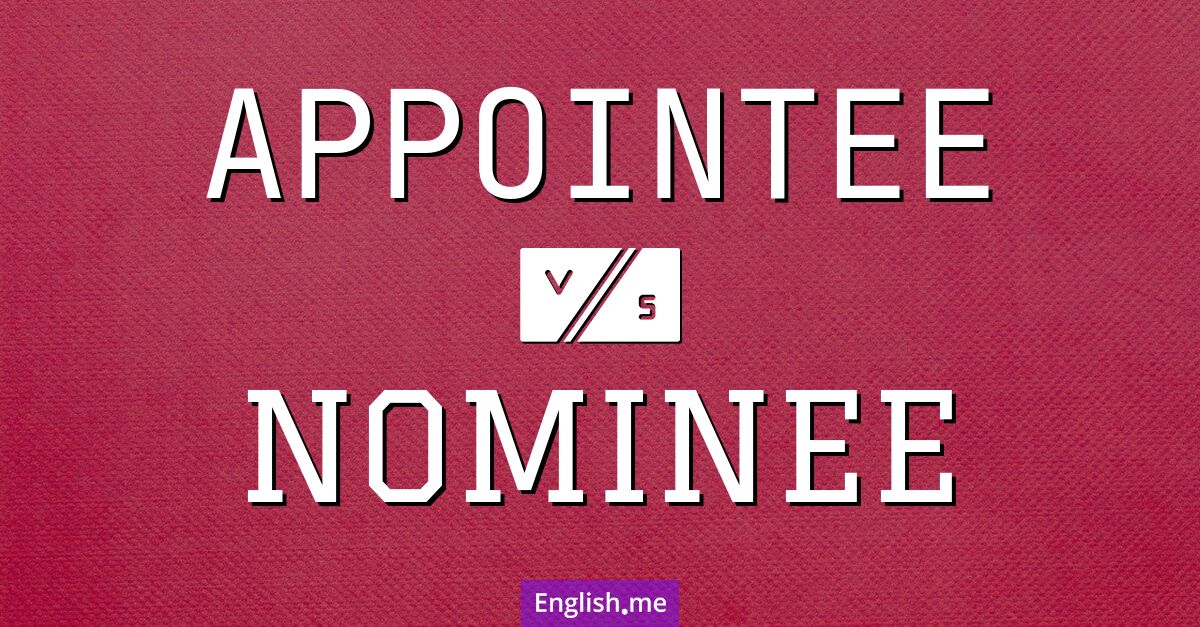Comparing roles: "appointee" vs. "nominee"
Reviewed and edited by  Lloyd Cooper 08/11/2024, 09:58
Lloyd Cooper 08/11/2024, 09:58
English.me team member

 What is similar?
What is similar?
Both "appointee" and "nominee" refer to individuals selected or proposed for a position or role. They are often used in the context of organizations, government, and other formal settings where individuals are considered for specific roles.
 What is different?
What is different?
The term "appointee" refers to someone who has been officially assigned or designated to a position or role, typically after a selection process. In contrast, "nominee" refers to someone who has been put forward as a candidate for a position, often requiring further approval or confirmation before officially holding the position.
 Which one is more common?
Which one is more common?

 Examples of usage
Examples of usage
Appointee- The appointee will start their new role next month.
- As the appointee, she is expected to lead the committee effectively.
- He was grateful to be chosen as the appointee for the role.
- She was thrilled to be named the nominee for the award.
- The board will vote to confirm the nominee next week.
- As a nominee for the position, he had to present his qualifications.

 English
English español
español française
française italiano
italiano deutsche
deutsche 日本語
日本語 polski
polski česky
česky svenska
svenska Türkçe
Türkçe Nederlands
Nederlands